Americas
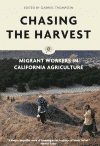
A Caste System Enforced by State Power
“No one comes out here. No one knows what we go through,” Roberto Valdez, a farmworker in the Coachella Valley town of Thermal, California, tells Gabriel Thompson, the interviewer and editor of Chasing the Harvest, a recently published book of interviews with farmworkers, growers, union activists, teachers, and others. And as one reads through the compelling stories that are told in the collection, one gets a deep sense of what Roberto means, as well as a passionate urge to have others know of the life and work of those who labor in California’s fields. | more…

Capitalism has many victims, but few fare as badly as slaughterhouse workers. Every day, meatpacking workers risk life and limb to provide cheap meat for consumers. Despite this, political scientist Timothy Pachirat once described slaughterhouse work as a form of labor “considered morally and physically repellent by the vast majority of society that is sequestered from view rather than eliminated or transformed.” Yet, slaughterhouses are the sites of some of labor’s greatest triumphs. Lynn Waltz documents one such triumph in her book Hog Wild, which describes how meatpacking workers successfully established a union at the Tar Heel slaughterhouse in North Carolina. While Waltz focuses on the particular fight at the Tar Heel plant, the unionization success of the workers there provides important lessons for future labor struggles. | more…
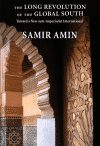
In this second volume of his memoirs, Samir Amin takes us on a journey to a dizzying array of countries, primarily in the Arab World, Africa, Asia, and Latin America, recounting in detail the stages of his ongoing dialogue over several decades with popular movements struggling for a better future. Along the way, we meet government leaders, activists in popular movements, and working people, both rural and urban. As in his many works over the years, The Long Revolution of the Global South combines Amin’s astute theoretical analyses of the challenges confronting the world’s oppressed peoples with militant action. | more…

These are uncertain times in Latin America. Popular faith in democracy has been shaken; traditional political parties and institutions are stagnating, and there is a growing right-wing extremism overtaking some governments. Yet, in recent years, autonomous social movements have multiplied and thrived. This book presents voices of these movement protagonists themselves, as they describe the major issues, conflicts, and campaigns for social justice in Latin America today. | more…
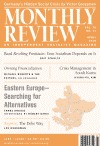
In the midst of the U.S.-directed coup attempt against the Bolivarian Republic of Venezuela in January–February, Donald Trump delivered a number of verbal attacks on socialism in Venezuela, Cuba, and Nicaragua. The immediate object was to justify U.S. attempts to overthrow the Bolivarian Republic. The less immediate, but hardly less important, goal was to tarnish the growing social democratic (self-styled democratic socialist) movement in the United States, associated with figures like Bernie Sanders and Alexandria Ocasio-Cortez. In order to safeguard their ambitious social-reform program, the new coterie of Democratic Party socialists have thus sought to separate themselves from Venezuela and other Latin American socialist states, presumably abandoning these countries to their fates at the hands of U.S. imperialism. This raises the historic question of social imperialism—a policy of social reform at home and imperial hegemony abroad. | more…

This reprise of “The Debs Way”—the text of an address Leo Huberman delivered at the Debs Centennial Meeting held at the Fraternal Clubhouse in New York City on November 28, 1955—not only reminds us of the importance of Eugene V. Debs to the history of socialism in the United States, but also brings out some of the core beliefs of Huberman’s own approach to socialism. While today’s conditions are of course vastly different from when the address was delivered more than sixty years ago, the basic principles that Huberman derives from Debs remain relevant.

Your Socialism Depends on It
Revolting Prostitutes reminds readers that this struggle is at once bigger than any one sex worker’s immediate needs, but also must be precisely driven by these day-to-day needs. While this might at first seem contradictory, the book emphasizes how the collective workforce is constituted by individual workers with varied experiences, all of which are unique and valid. Narrative matters and, with Revolting Prostitutes, we are gifted one shaped by nuanced, considerate, care-informed members of the impacted working community. | more…

Why would an American girl-child, born into a good, Irish-Catholic family in the thick of the McCarthy era—a girl who, when she came of age, entered a convent—morph into an atheist, feminist, and Marxist? The answer is in Helena Sheehan’s fascinating account of her journey from her 1940s and 1950s beginnings, into the turbulent 1960s, when the Vietnam War, black power, and women’s liberation rocked her bedrock assumptions and prompted a volley of life-upending questions—questions shared by millions of young people of her generation. But, for Helena Sheehan, the increasingly radicalized answers deepened through the following decades. | more…

The circumstances that impelled Victor Grossman, a U.S. Army draftee stationed in Europe, to flee a military prison sentence were the icy pressures of the McCarthy Era. Grossman—a.k.a. Steve Wechsler, a committed leftist since his years at Harvard and, briefly, as a factory worker—left his barracks in Bavaria one August day in 1952, and, in a panic, swam across the Danube River from the Austrian U.S. Zone to the Soviet Zone. Fate—i.e., the Soviets—landed him in East Germany, officially the German Democratic Republic. There he remained, observer and participant, husband and father, as he watched the rise and successes, the travails, and the eventual demise of the GDR socialist experiment. | more…
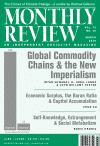
The present ongoing coup attempt organized in Washington is simply the latest in a series of such attempts by the U.S. government to overthrow the Bolivarian Republic of Venezuela over the last two decades. It can be seen as having three interrelated motives: (1) the destruction of Venezuelan socialism, (2) regaining control of Venezuela’s oil (the largest petroleum reserves in the world), and (3) reasserting U.S. hegemony over Latin America. | more…
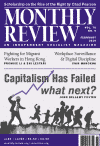
Climatologist James Hansen’s 2018 “Climate Change in a Nutshell: The Gathering Storm,” known as the Nutshell document, is the single most important analysis currently available for general readers seeking to stay abreast of the science and politics of global warming. Nevertheless, denial of the extent of the conflict between capitalism and the climate remains pervasive. Such views were subjected to a strong refutation by Enno Schröder and Servaas Storm in a November 2018 paper entitled “Economic Growth and Carbon Emissions: The Road to ‘Hothouse Earth’ Is Paved With Good Intentions.” | more…

Liberal Historians and the Retreat from Class
While the explosion of studies on the rise of the right has undoubtedly enriched our understanding of these powerful forces and individuals, we are due for critical assessments of these studies from the left. Over the past few decades, dismissals of class-based interpretations of history have plagued this type of scholarship. Expressed by some of the profession’s most institutionally privileged members, such dismissals have led to a narrowing of discussions and debates by limiting studies to the tensions between liberals and conservatives and by downplaying or ignoring leftist critiques of liberalism. | more…











